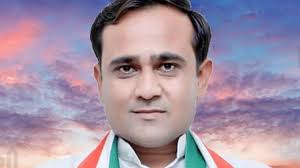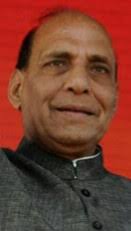Prime Minister Narendra Modi made the announcement today, January 28, during the Diamond Jubilee Celebrations of the Supreme Court, that the Union Government had approved the expansion of the court’s complex with an allocation of Rs. 800 crores.
The Head of State acknowledged the difficulties the High Court has faced in its current jurisdiction during his speech at the event and mentioned that the public authority had recently approved a budget of Rs. 800 crores for the Supreme Court Building Complex’s expansion.
It is crucial for remember that India’s Main Equity, DY Chandrachud, had recently proposed fabricating a shiny new, state of the art High Court structure.
The Diamond Jubilee Celebrations and Technological Advancements
The Gem Festivity Merriments and Inventive Upgrades The current celebration regarded the High Court’s 1950 replacement of the Public authority Court of India and the Privy Chamber’s Lawful Warning gathering. Additionally, it marked the beginning of the court’s 75th year. Advanced Courts 2.0, the shiny new High Court site, and the Computerized High Court Reports (Digi SCR) were among the resident focused data and innovation drives PM Modi sent off right now.
Indian residents will be able to gain free electronic access to the High Court through the Advanced High Court Reports (SCR). This initiative guarantees that each of the 519 volumes of reports from the High Court, which include 36,308 cases and date back to around 1950, will be carefully accessible. The digital SCR will be simple to locate, user-friendly, free, and bookmarkable.
The e-Courts project, which aims to give district court judges electronic access to court records, recently added Digital Courts 2.0. This technology uses artificial intelligence (AI) to turn speech into text in real time.
PM Modi’s Address
The CJI DY Chandrachud, Judges for the country’s most elevated court, chose from Indian and new high courts, Guideline Pastor Arjun Crush Meghwal, Head lawful official R Venkataramani, High Court Bar Alliance President Dr. Adish C Aggarwala, and Overseer of the Bar Leading group of India Manan Kumar Mishra were among the perceived guests that PM Modi welcomed in his area.
The Top state leader discussed how the creators of India’s constitution needed a country in light of opportunity, uniformity, and equity. He praised the High Court for consistently upholding and protecting these goals throughout its 70-year history. The choices made by the court in regards to individual honors, the option to free discourse, and social equality essentially affect India’s social and political scene.
As the foundation for India’s promising future, Prime Minister Narendra Modi emphasized the significance of economic laws and policies. He demonstrated the significant legal changes that have propelled India’s policing frameworks into a new era by citing the country’s most recent criminal law revision. He also mentioned the never-ending planning and preparation carried out by the government authorities.
India’s ongoing needs, which included simplicity of life, simplicity of business, simplicity of movement, simplicity of correspondence, and, above all, simplicity of equity, were framed by the nation’s State leader. He requested that the High Court lead endeavors to work on the abilities of all gatherings included.
PM Modi focused on the significance of ensuring permission to value for each side of the country, highlighting the serious role that the Great Court plays in the structure of the value movement. He made it abundantly clear that the funding for the e-court mission project’s third stage has been four times greater than that for the project’s second stage.
Additionally, the Top of the state praised CJI Chandrachud for explicitly directing the digitization of Indian courts. He granted the public power’s obligation to chipping away at the genuine construction of courts, with over Rs. beginning around 2014, 7000 crores have been circulated thus.
PM Modi additionally discussed how innovation can make it more straightforward to do equity. He demonstrated this by simultaneously translating his location into English for a group of people using artificial intelligence.
The PM perceived the posthumous award of the Padma Bhushan to Value Fathima Beevi, the principal woman to serve on the High Court and a past Adjudicator for the country’s most noteworthy court. He expressed how proud he was of this affirmation.



